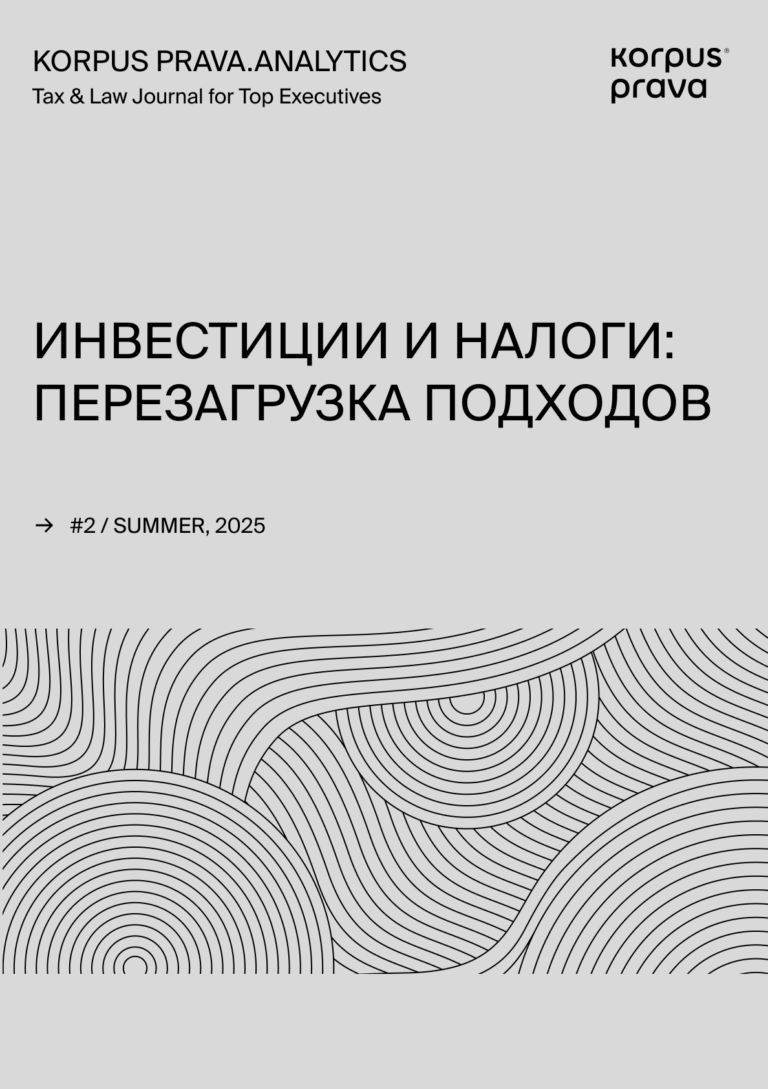Развитие международного частного права на национальном уровне: Постановление Пленума ВС РФ о применении норм международного частного права (09.07.2019)
2019 год был полон событий в законодательной и правоприменительной сферах. Новеллы коснулись, в том числе, и сферы международного частного права: Пленум Верховного Суда РФ впервые дал предметные разъяснения о применении российскими судами общей юрисдикции и арбитражными судами норм международного частного права в своем Постановлении от 09.07.2019 №24. Несмотря на то, что речь идет не о полноценной реформе международного частного права в России, появление Постановления Пленума Верховного Суда РФ о применении норм международного частного права судами Российской Федерации можно охарактеризовать как практически значимое событие как для судей, которые непосредственно ориентированы на применение норм международного частного права и разрешение на их основе спорных ситуаций, возникающих в сфере трансграничного гражданско-правового оборота, так и для представителей бизнеса, ведущих свою деятельность в международной плоскости.
Содержание Постановления Пленума о применении норм международного частного права судами Российской Федерации составляют следующие крупные блоки:
- Общие положения.
- Право, подлежащее применению при определении правового положения лиц.
- Право, подлежащее применению к вещным правам.
- Право, подлежащее применению к форме сделки.
- Право, подлежащее применению к договорным обязательствам.
- Право, применимое к отношениям с участием потребителей.
- Право, подлежащее применению к отношениям добровольного представительства.
- Право, подлежащее применению к внедоговорным обязательствам.
Представляется, что содержание было определено некоторыми пробелами и ошибками в правоприменительной практике, которые негативным образом сказывались на результатах рассмотрения дел, подлежащих разрешению на основании норм международного частного права. Как уже было отмечено, правовые позиции, рассмотренные Пленумом Верховного суда, будут полезны не только судебным органам, но также станут довольно функциональным «руководством» для юристов международных компаний, юридических консультантов при составлении трансграничных контрактов и структурировании сделок, включающих иностранные элементы.
Как известно, нормы международного частного права подлежат применению, в случае наличия иностранного элемента. Перечень иностранных элементов приведен в п.1 ст. 1186 ГК РФ: иностранный субъект правоотношения, иностранный объект правоотношения. Стоит отдельно отметить, что установленный в Гражданском Кодексе перечень не является закрытым, в Постановлении также приводится пример непоименованного иностранного элемента: «В качестве иностранного элемента в том числе может также рассматриваться совершение за границей действия или наступление события (юридического факта), влекущего возникновение, изменение или прекращение гражданско-правового отношения».
В разделе «общие положения» устанавливается, в том числе, и «приоритет» применения материально-правовых норм, закрепленных в международных договорах, участником которых является Российская Федерация. Иными словами, определение применимого право на основе коллизионных норм исключается, в случае, когда вопросы в полной мере урегулированы приведенными выше материально-правовыми нормами. В случае, если вопрос не разрешен в международном договоре, применимое право будет определяться на основании применения коллизионных норм международного частного права, в свою очередь, содержащихся как во внутригосударственном законодательстве, так и в нормах международных договоров и соглашений (при этом, коллизионные нормы, закрепленные в международных актах, участницей которых является Россия, будут в первую очередь являться руководством для российских судей при определении применимого права). При отсутствии источников, на основании норм которых можно определить применимое право, суду, как и ранее, следует применять критерий «наиболее тесной связи», основным фактором в котором выступает преобладающая территориальная связь различных элементов правоотношения.

*Верховный суд дополнительно поясняет, что «суд также может принимать во внимание, применение права какой страны позволит наилучшим образом реализовать общепризнанные принципы гражданского права и построения отдельных его институтов (защита добросовестной стороны, недопустимость извлечения преимуществ из своего недобросовестного поведения, запрет злоупотребления правом, защита слабой стороны, предпочтительность сохранения действительности сделки, запрет необоснованного отказа от исполнения обязательства и т.п.)».
Кроме того, отдельное внимание в Постановлении уделяется вопросу иерархичности норм международных договоров, подлежащих применению к спорным правоотношениям, в связи с чем Пленум отмечает, что «Суд определяет сферу действия норм в соответствии с разделом 2 части 3 Венской конвенции 1969 года о праве международных договоров. Специальные нормы, закрепленные в международных договорах, имеют приоритет в применении по отношению к общим нормам (данное общее правило не зависит от дат принятия соответствующих международных договоров и количества их участников, однако, в качестве исключения, нормами таких международных договоров может быть установлено иное). Представляется, упоминание об иерархичности в Постановлении вызвано анализом ошибочного применения норм международных договоров, и должно привести к минимизации или устранению случаев некорректного выбора подлежащих применению норм российскими судами в каждом конкретном случае.
Впервые в российской практике установлено правило применения негосударственных источников, практическую важность которого сложно переоценить. Стороны контракта, в котором присутствует иностранный элемент, могут закрепить в соглашении о применимом праве выбор нейтрального права, а также определить документы, содержащие правила-рекомендации для участников международного гражданско-правового оборота. Таким образом, Пленумом Верховного Суда признано право сторон на выбор негосударственных источников права как аналогичный выбору применимого права (национального) инструмент. Применение таких правил как Принципы международных коммерческих контрактов УНИДРУА, Модельные правила европейского частного права, Европейские принципы договорного права (ЕПД) возможно исключительно при наличии прямо выраженного соглашения сторон. Национальное право, при условии выбора сторонами негосударственных источников права, будет применяться на субсидиарной основе и выступать в качестве регулятора вопросов, которые остались незатронутыми выбранными негосударственными источниками.
В продолжение темы lex mercatoria (негосударственного регулирования, обычаев торгового оборота и пр.) Пленум Верховного Суда детализирует условия применения Правил по использованию национальных и международных торговых терминов – Инкотермс (Incoterms): если стороны использовали в контракте торговые термины Инкотермс, не сделав ссылку на Правила Инкотермс непосредственно в тексте контракта, применение к отношениям Инкотермс в редакции, действовавшей на дату заключения контракта, тем не менее, будет считаться согласованным сторонами (при отсутствии доказательств иного намерения сторон, бремя доказывания которого лежит на сторонах контракта). В силу приоритета положений Инкотермс перед диспозитивными нормами договорного статута, при структурировании контрактных условий необходимо уделять особое внимание анализу правовых последствий применения к отношениям Правил Инкотермс.
Несмотря на очевидный прогресс в развитии правил «негосударственного регулирования», lex mercatoria, их применение не может выступать единственным и всеобъемлющим регулятором отношений, и, ни в коем случае, не может отменить применение национального законодательства в качестве субсидиарного статута к отношениям, складывающимся между сторонами трансграничных сделок.
В современных условиях трансграничного гражданско-правового оборота, постоянного развития международно-правового регулирования частно-правовых отношений, появления и активного применения международных торговых обычаев, транснациональных кодификаций, модельных законов и типовых контрактов, национальное регулирование отношений, складывающихся в сфере международного частного права, нуждается в адаптации к таким условиям, в совершенствовании и, в некотором роде, в толковании и детализации. Постановление Пленума Верховного Суда о применении норм международного частного права судами Российской Федерации, первое Постановление Пленума в сфере международного частного права, очевидно свидетельствует о внимании законодателя и правоприменителя к данной области права, о желании усовершенствовать практику применения норм международного частного права и вывести национальное международное частное право на принципиально новый уровень, соответствующий современным международным тенденциям. Как было отмечено, рассмотренные Пленумом Верховного суда правовые позиции представляют собой довольно функциональное «руководство», призванное как обратить внимание на комплексные вопросы международного частного права в целом, так и стать помощником в корректном структурировании трансграничных отношений и в повышении уровня транспарентности соответствующих правовых последствий.


